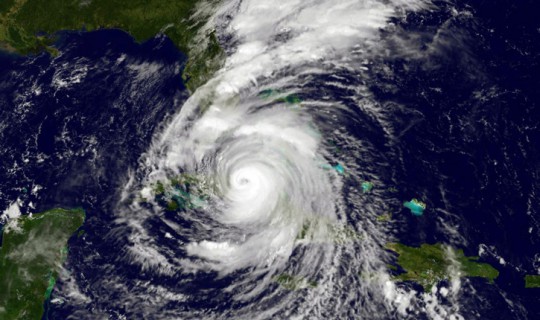House Backs Rules For Nursing Home Generators
February 28, 2018
A House committee on Tuesday agreed to take steps to ratify a rule requiring nursing homes to have backup-power sources but didn’t endorse similar requirements for assisted living facilities because of concerns about the costs.
Gov. Rick Scott in recent months has pushed for nursing homes and assisted living facilities to have generators that can keep buildings cool if electricity goes out.
 McKinley Lewis, Scott’s deputy communications director, told The News Service of Florida on Tuesday that assisted living facilities need to be “included” in the mix and that the governor’s office is “continuing to work with the Florida Legislature to make sure this gets done.”
McKinley Lewis, Scott’s deputy communications director, told The News Service of Florida on Tuesday that assisted living facilities need to be “included” in the mix and that the governor’s office is “continuing to work with the Florida Legislature to make sure this gets done.”
The House Health & Human Services Committee voted unanimously to introduce a bill that would ratify a rule issued by the state Agency for Health Care Administration, which regulates nursing homes. The proposed rule, which was hammered out by the Scott administration and the long-term care industry, would require nursing homes to have alternative power sources, such as generators, on site and 72 hours of fuel. The generators would need to be able to keep cool an area of no less than 30 square feet per resident at a temperature of 81 degrees Fahrenheit or lower for at least 96 hours.
The rule is estimated to cost nursing homes $121.3 million over the first five years, and about $66 million can be offset by Medicaid, according to a staff analysis. Agency for Health Care Administration Secretary Justin Senior told committee members that about $25 million of the $66 million Medicaid tab would be borne by the state.
Since 2010, Florida law has required legislative ratification of any rule that would increase the costs of doing business by more than $1 million over a five-year period.
House Health & Human Services Chairman Travis Cummings, R-Fleming Island, has repeatedly expressed concerns that requiring assisted living facilities to abide by backup power rules would result in an unfunded mandate on some of Florida’s smallest businesses.
The 2,951 assisted living facilities in the state would have to spend more than $243 million to comply with the requirements.
Scott’s administration has pushed for generators at ALFs and nursing homes since the deaths in September of residents of The Rehabilitation Center at Hollywood Hills, a Broward County nursing home that lost its air-conditioning system in Hurricane Irma. But long-term care providers have raised repeated concerns about issues such as costs and requirements to store fuel.
Assisted living facilities are designed to provide services in a less-restrictive and more home-like environment than nursing homes. They range from one resident to several hundred residents and offer various types of personal and nursing services.
Senior told members of the House committee that in the days following Hurricane Irma, the state emergency operations center had nightly phone calls with long-term care providers and that the Agency for Health Care Administration sent facility-surveyor staff across the state to get a gauge on what was occurring.
Senior said 1,677 assisted living facilities reported that they lost power during Hurricane Irma. Senior said facilities without backup power tended to have what he called employee abandonment, or staff not showing up for work.
He said that the “lack of staffing really put some frail elders at risk.”
Moreover, Senior said, the state “saw ALF residents, in particular, dumped inappropriately at special needs shelters and hospital emergency rooms.”
Cummings then asked Senior to focus what was in the bill and not on ALFs, which weren’t included in the bill.
Comments
2 Responses to “House Backs Rules For Nursing Home Generators”



Nursing homes AND assisted living facilities should be required to
have back up power just like hospitals have back up power. If rates
must increase to cover the systems then so be it. Our Politicians need
to stop the incessant politicking and fix this issue. The maintenance of
such systems to insure they work when needed must be addressed from
the git-go rather than myriad failures when the lights go out.
A year after elderly folks in nursing care died from heat when the power went out, and not one thing has been done. People desperately called 911 as people were dying from the heat in a nursing home, and there was a hospital across the street. Every criminal sitting in a jail has jail standards which make them nice and comfortable when the power goes out. Grandma can die, but a murderer can sit nice and cool as the jails and prisons do not lose power. No wonder people have no faith in government. Point fingers and do nothing for a year. Splendid.